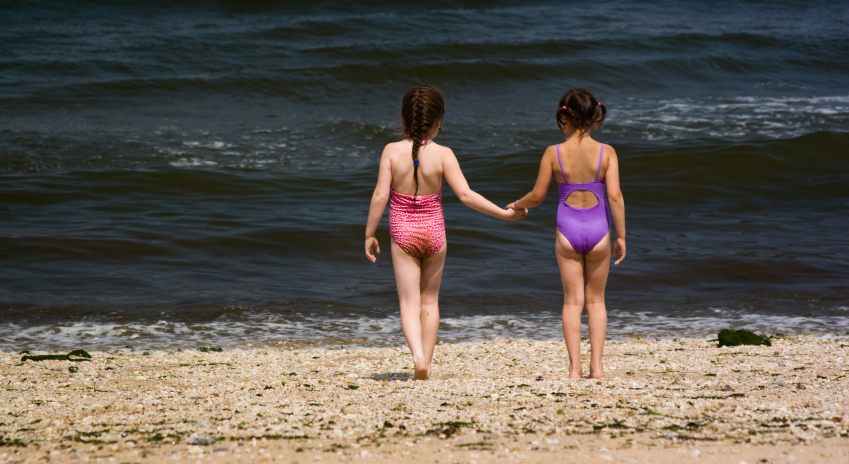I have two teenage daughters. I was a teenage girl myself once. So anorexia is not a foreign concept to
me. Especially because the summer before
I went to Harvard, I lost 40 pounds myself. I spent my freshman year gaining
the weight back, which was hard enough (think 1,600 classmates watching you
change a pants size every month). But the really steep climb to mental health
was admitting I had almost killed myself.
Although that was 30 years ago, I will
never forget the grip anorexia had on me. So
naturally I read with great interest a recent piece on Salon by the mother of a nine-year-old anorexic
girl.
Yes, nine years old and anorexic.
The essay is one of the best windows into
parenting an anorexic girl I’ve ever come across. Anyone with a young girl under their roof
should read it. Here’s a brief excerpt from the nine-year-old’s mother:
“Slowly, the pieces fell
into place: odd comments over the summer that I had dismissed, thinking if I
didn’t make a big deal out of them, they would pass like so many other random
fears and concerns that my children had.
Questions, such as:
“Are my legs fat?”
“I feel full.”
“Do you think I’m fat?”
My response? It was so
absurd I laughed and told her if anything she probably didn’t eat enough.
I also didn’t pay
attention when she lost interest in foods she had once loved. I thought it was
just a phase. In her short nine years, my complex daughter had brought up
unusual fears and concerns. Usually if I didn’t make a big deal — took it in
stride and gave her a little reassurance — it went away.
This time, it didn’t.
When the scale showed she
was only 50 pounds — seven pounds less than she’d been during a visit only a
few months before — her pediatrician referred us to a children’s hospital.
There, they diagnosed her as malnourished and suffering from an eating
disorder.”
This is
what I remember most vividly from being an 18-year-old shrinking to less than
90 pounds: anorexia is a seductive, beguiling affliction, more powerful than
either of my parents. Anorexia is one of
those terrible psychological sirens that entice you to destruction while
whispering sweet reassurances in your ears.
As I fingered my prominent collarbones, hip bones, and even one day, the
outline of my liver, I was adamant that anorexia was my best friend. It was my
shield, the solution to the terror I had about growing up, becoming a woman,
leaving my family, and embarking on the big bad world of Ivy League competition
and independence.
At 18, I
was old enough to know I would never be the smartest, the prettiest, the fastest
runner, the most talented artist, or the most loved girl in the world. So I
settled on being the thinnest.
Anorexia
gave me round-the-clock, 24/7 solace to my deepest insecurities and fears,
normal fears many teenagers experience.
What parent can possibly compete with mainlining that kind of comfort? Especially parents like mine, who believed in
me and knew I had to face my fears, head off to college, jump into adulthood
and find my sea legs on my own.
So,
combining my parent-of-three perspective with my experience as a recovered
anorexic myself, here’s my advice:
1. Don’t ignore a child who makes negative
comments about his or her body. Use the
intimacy of the parent-child relationship to lavish them with compliments and
reality checks. “You have such gorgeous
legs,” or “You’re right, you are not as teeny as Sara, but you’re stronger and
it’s great to be taller on the basketball court.” Or whatever.
Compliment them daily. But
careful: don’t trivialize their doubts, or shame them for having them. Heap self-esteem on them to counter the
negative messages they are clearly hearing.
2. Don’t hope the problem is a phase that will go
away. Anorexia can be a lifelong scourge, and it is one of the leading killers
of women in America. It is too lethal to
dismiss.
3. Don’t blame the media; don’t bothering ban
magazines or the Kardashians from your home. Also don’t ever blame yourself.
The blame-game is useless and will distract you from the real problem.
4. If you have a child who has lost more than a
few pounds, make her gain the weight back first – before sending her to a
therapist to figure out why (though critical, that comes much later). Just like getting an addict off drugs, you
need to halt the starvation (and the endorphins losing weight releases in one’s
brain) before you can reason with an anorexic. Use behavior management, restrictions and
rewards to get your child back to a physically and mentally healthy weight.
Then tackle the “why’s”.
5. Find out if there are support groups of girls
who are committed to recovering in your area, by calling local hospitals,
pediatricians or therapists who specialize in treating eating disorders. Active
anorexics encourage each other to lose weight, and they are dangerous. But actively recovering anorexics may be the
only people who truly understand the strange suffering and superiority
anorexics experience, and they can offer priceless self-help support.
6. Once she’s gained the weight back, then
encourage her to figure out how and why this happened to her, and to face the
dangers that self-destructiveness brings.
This is the upside of recovering from anorexia: a new kind of respect and love for yourself
and your body, despite or even because of one’s imperfections.





